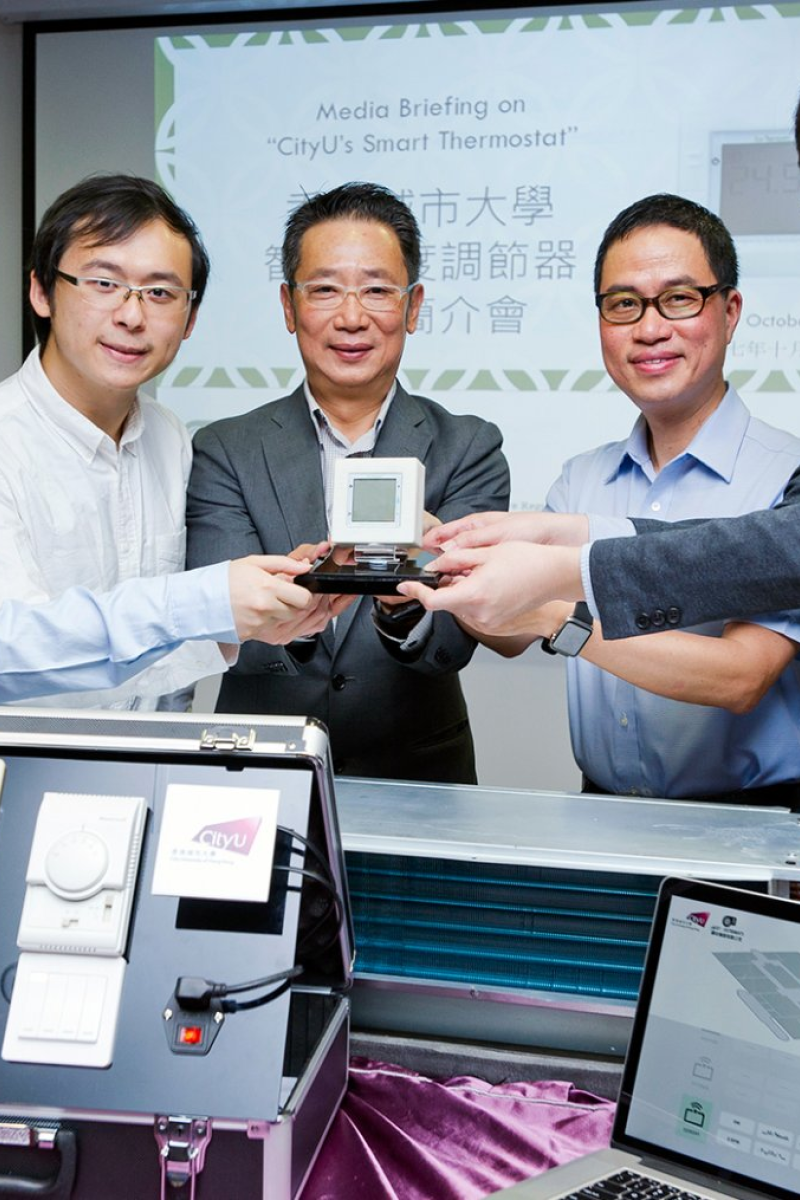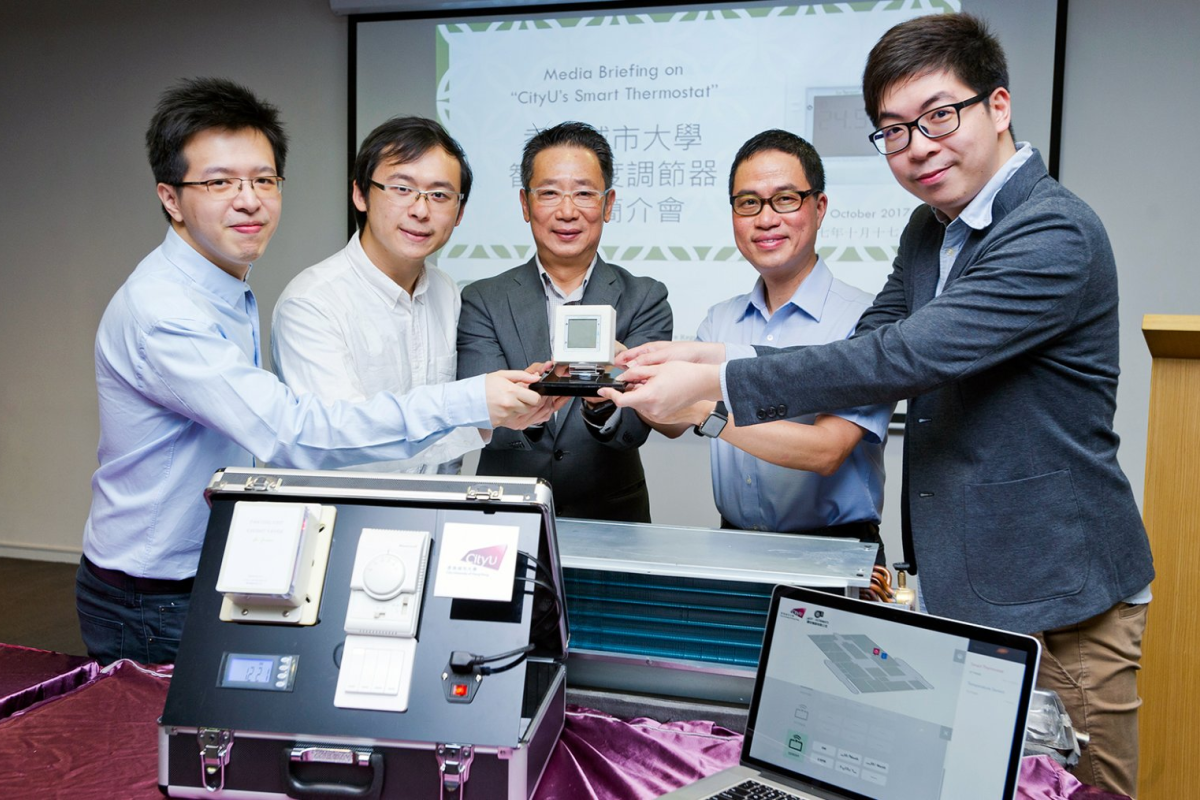
This smart thermostat will keep you from freezing in Hong Kong's extreme air-conditioned indoor temperature
Sponsored feature
 The smart thermostat developed by CityU saves energy while keeping the indoor temperature in check.
The smart thermostat developed by CityU saves energy while keeping the indoor temperature in check. A smart thermostat for central air-conditioning systems, jointly developed by students and professors from the Department of Electronic Engineering (EE) and the Division of Building Science and Technology (BST) at City University of Hong Kong (CityU), was recently launched into the market.
The device can reduce power consumption by at least 10 per cent and stabilise indoor temperatures to a comfortable level. The technology belongs to a new generation of indoor thermostats that focus on boosting energy efficiency for central air-conditioning systems in buildings.
The research team comprises Jacky Lai Chun-tak and Ryan Yeung Shun-cheung, PhD students of EE, and Dr John Chan Yau-chung, postdoctoral fellow in BST. Professor Henry Chung Shu-hung from EE and Dr Norman Tse Chung-fai from BST also joined the team as consultants.
“Conventional air-conditioning systems control indoor temperatures through incessant temperature fluctuation, which consumes a large amount of energy. We invented a new temperature control algorithm to control the fan coil in the system, keeping the indoor temperature stable. In this instance energy consumption of the air-conditioning system can be significantly reduced,” said Lai.
“Installing smart thermostats is simple and cost-effective, as modification or replacement of the air-conditioning system is not required. Simply replacing existing thermostats with our smart ones lessens 20 to 40 per cent of energy consumption of the fan coil, or more than 10 per cent for the entire central air-conditioning system,” he added.
Conventional air-conditioning systems can only provide three fan speed options. The smart thermostat offers an additional “ultra-low speed” option, which maintains optimal indoor ventilation while reducing energy use.
While conventional thermostats can only measure surrounding temperatures, the smart thermostat, with its “human comfort wireless sensor”, can measure temperatures at different locations. It can provide a range of data including temperature distribution, power consumption, energy-saving efficiency and the thermal comfort level for users.
Not only can the device regulate indoor temperatures, with the help of cloud technology and the right gadgets, users can also make use of smartphone applications to more accurately monitor and control temperatures remotely.
“Smart thermostats are particularly suitable for central air-conditioning systems in old buildings because there is no need to modify the existing structure of the systems,” said Dr Tse. “It can improve the overall energy efficiency in Hong Kong.”
The smart thermostat project has received funding from the Technology Start-up Support Scheme for Universities (TSSSU), which runs under the Innovation and Technology Commission, for three consecutive years. After filing for three patents, it is now sold in the market.
More importantly, the project allows students to transfer the knowledge and concepts they acquired at university into commercial products, and contribute to the wellbeing of society.
